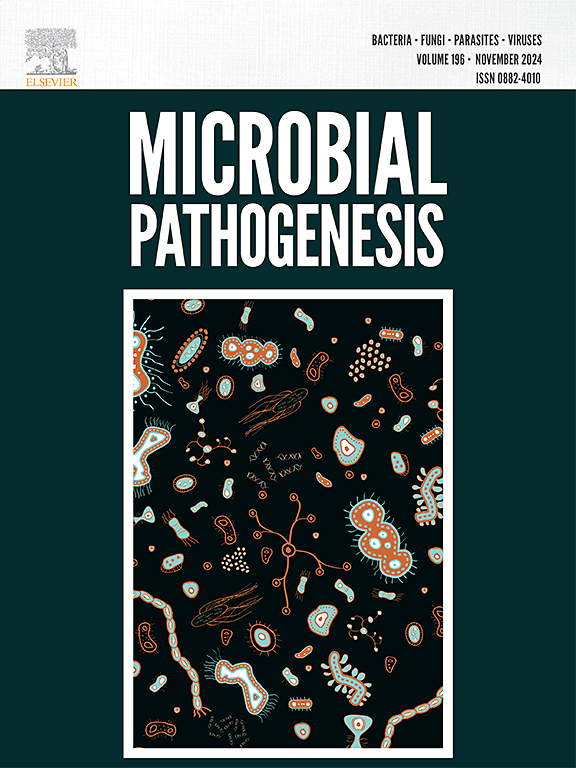Altered gut microbiota composition and its clinical correlations in patients with severe pneumonia: a single-center observational study in China
IF 3.5
3区 医学
Q3 IMMUNOLOGY
引用次数: 0
Abstract
Severe pneumonia in intensive care unit (ICU) patients is frequently accompanied by alterations in the gut microbiota. To explore the characteristics of the gut microbiota in these patients, we conducted an observational study comparing 38 patients with severe pneumonia to 34 healthy participants. We used 16S rRNA gene sequencing to profile their gut microbiota and analyze its correlation with clinical parameters. Our results show a significant dysbiosis in the gut microbiota of severe pneumonia patients, characterized by reduced diversity and notable shifts in microbial composition. Specifically, the study revealed an increase in potentially harmful bacteria like Enterococcus and a decrease in potentially beneficial bacteria such as Megamonas and Faecalibacterium. Functional analysis showed an upregulation of pathways for Staphylococcus aureus infection and valine, leucine, and isoleucine degradation in the severe pneumonia group compared to the healthy control group. Furthermore, our analysis found positive correlations between certain bacteria and clinical indicators. Megamonas abundance correlated positively with prealbumin levels, a marker of nutritional status. Bifidobacterium showed a positive correlation with white blood cell (WBC) count, and Blautia was positively correlated with the duration of mechanical ventilation. These findings suggest that gut microbiota dysbiosis may play a role in the progression of severe pneumonia, highlighting the potential for targeted therapies in this patient population.
中国重症肺炎患者肠道菌群组成改变及其临床相关性:一项单中心观察性研究
重症监护病房(ICU)患者的严重肺炎经常伴有肠道微生物群的改变。为了探索这些患者肠道微生物群的特征,我们进行了一项观察性研究,将38名重症肺炎患者与34名健康参与者进行了比较。我们使用16S rRNA基因测序分析了他们的肠道微生物群,并分析了其与临床参数的相关性。我们的研究结果显示,严重肺炎患者的肠道微生物群存在显著的生态失调,其特征是微生物组成的多样性减少和显著变化。具体来说,该研究揭示了肠球菌等潜在有害细菌的增加和巨单胞菌和粪杆菌等潜在有益细菌的减少。功能分析显示,与健康对照组相比,重症肺炎组的金黄色葡萄球菌感染和缬氨酸、亮氨酸和异亮氨酸降解途径上调。此外,我们的分析发现某些细菌与临床指标呈正相关。巨单胞菌丰度与白蛋白前水平呈正相关,白蛋白前水平是营养状况的标志。双歧杆菌与白细胞(WBC)计数呈正相关,Blautia与机械通气时间呈正相关。这些发现表明,肠道菌群失调可能在严重肺炎的进展中发挥作用,突出了针对这类患者群体的靶向治疗的潜力。
本文章由计算机程序翻译,如有差异,请以英文原文为准。
求助全文
约1分钟内获得全文
求助全文
来源期刊

Microbial pathogenesis
医学-免疫学
CiteScore
7.40
自引率
2.60%
发文量
472
审稿时长
56 days
期刊介绍:
Microbial Pathogenesis publishes original contributions and reviews about the molecular and cellular mechanisms of infectious diseases. It covers microbiology, host-pathogen interaction and immunology related to infectious agents, including bacteria, fungi, viruses and protozoa. It also accepts papers in the field of clinical microbiology, with the exception of case reports.
Research Areas Include:
-Pathogenesis
-Virulence factors
-Host susceptibility or resistance
-Immune mechanisms
-Identification, cloning and sequencing of relevant genes
-Genetic studies
-Viruses, prokaryotic organisms and protozoa
-Microbiota
-Systems biology related to infectious diseases
-Targets for vaccine design (pre-clinical studies)
 求助内容:
求助内容: 应助结果提醒方式:
应助结果提醒方式:


